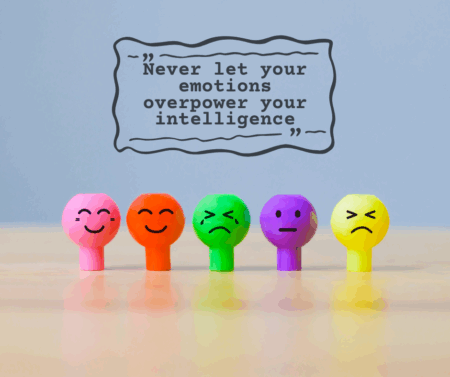Emotional intelligence (EI) is a critical skill that influences how we understand and manage emotions, interact with others, and navigate both personal and professional challenges. Not to be confused with IQ which is linked to academic success. Emotional intelligence plays an equally—if not more—important role in building strong relationships, making informed decisions, and achieving personal and professional growth.
The Definition
Emotional intelligence refers to the ability to recognise, understand, and regulate emotions in oneself and others. EI is made up of four key components:
- Self-Awareness – Understanding your own emotions, recognising how they affect your thoughts and actions.
- Self-Regulation – Managing emotions effectively, staying in control under pressure, and adapting to changing circumstances.
- Social Awareness (Empathy) – Recognising emotions in others, understanding social dynamics, and responding with empathy.
- Relationship Management – Navigating social interactions, resolving conflicts, and building positive relationships.
These skills are crucial, from the workplace to personal relationships, influencing our ability to communicate, make decisions, and handle stress effectively.
Why does it matter?
- Enhancing Workplace Success
In today’s professional world, technical skills alone are not enough to succeed. Employers increasingly value personal and emotionally intelligent employees who can:
- Work well in teams and communicate effectively.
- Manage stress and stay composed under pressure.
- Adapt to change and problem-solve with a level-headed approach.
- Lead with empathy, fostering a positive and productive work environment.
Studies show that high emotional intelligence contributes to career success, with emotionally intelligent individuals being more likely to earn promotions, lead teams effectively, and build strong professional networks.
- Strengthening Personal Relationships
Whether in friendships, or in family dynamics, emotional intelligence helps people connect on a deeper level. Being able to recognise and understand emotions in others allows for:
- Improved communication and fewer misunderstandings.
- Greater empathy, leading to stronger and more meaningful connections.
- More effective conflict resolution, reducing arguments and tension.
People with high emotional intelligence are more likely to navigate relationships with patience and understanding, making them valued partners, friends, and family members.
- Supporting Mental Well-being
Emotional intelligence plays an important role in managing mental health. By developing emotional intelligence, individuals can:
- Identify and process their emotions in a healthy way.
- Reduce stress and anxiety by practising self-regulation.
- Build resilience, enabling them to cope with setbacks and challenges more effectively.
A high level of emotional intelligence helps individuals maintain emotional balance, leading to greater overall well-being and a more positive outlook on life.
- Improving Decision-Making Skills
Strong emotional intelligence enables individuals to make well-balanced, rational decisions by:
- Separating emotions from logic when evaluating situations.
- Recognising how emotions influence choices and avoiding impulsive reactions.
- Taking the emotions of others into account to make fair, well-informed decisions.
In both professional and personal settings, the ability to think clearly while managing emotions leads to better judgement and problem-solving.
How to Develop Emotional Intelligence
Emotional intelligence is not a fixed trait; it can be developed and strengthened over time. Here are some practical ways to improve EI:
✅ Practice Self-Reflection – Regularly assess your emotions, reactions, and behaviours to better understand yourself.
✅ Develop Active Listening Skills – Focus fully on others when they speak, show empathy, and respond thoughtfully.
✅ Manage Stress Effectively – Use mindfulness, deep breathing, or relaxation techniques to stay calm under pressure.
✅ Seek Constructive Feedback – Ask for feedback on your communication and interpersonal skills to identify areas for growth.
✅ Work on Conflict Resolution – Approach conflicts with a solution-focused mindset rather than reacting emotionally.
By actively working on these areas, anyone can strengthen their emotional intelligence and reap its many benefits.
If you would like your team or leaders (managers/supervisors) to be equip in implementing emotional intelligence or strengthening their ability, our group Emotional Intelligence, Conflict Management and Compliant Handling might be exactly what you need.
Call us 1300 122 287 or email hello@zealifi.com.au to receive further details.

